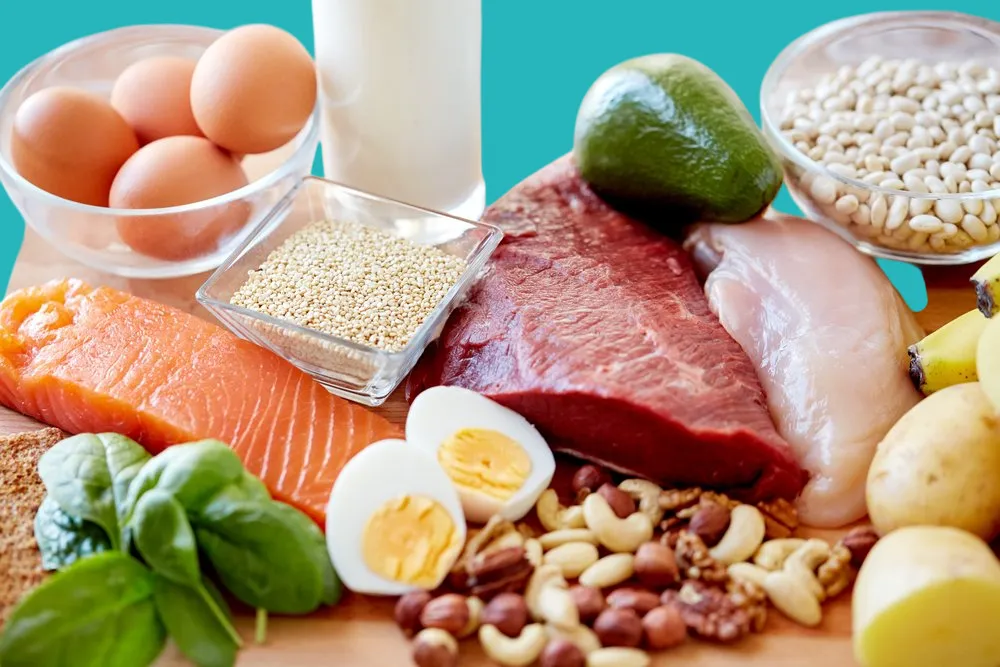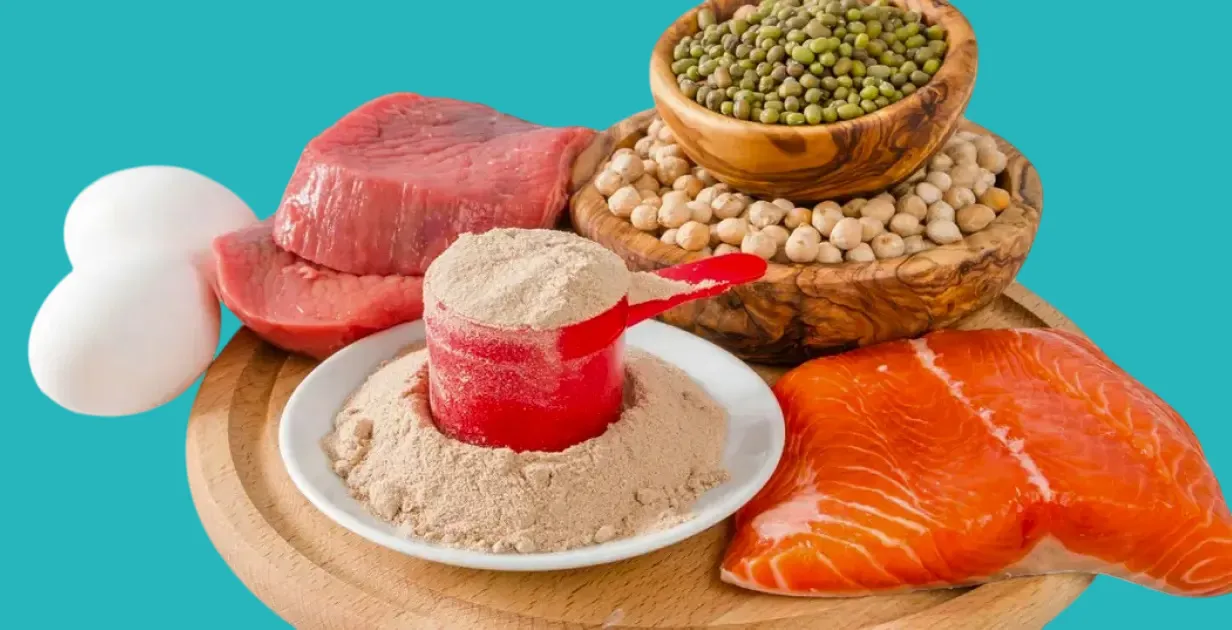Protein is an essential component of the body, and its presence in the diet is especially essential during weight loss. Protein helps protect muscles from breakdown and maintains body shape and strength.
What is protein?
Protein is one of the major nutrients, along with carbohydrates and fats, and is composed of amino acids, the building blocks of body tissue.
The Importance of Protein for the Body
Protein has many benefits, including:
- Building and repairing tissue and muscles.
- Supporting the immune system.
- Producing enzymes and hormones.
- Maintaining hair, skin, and nails.
The Relationship between Protein and Weight Loss
There is a relationship between protein and weight loss:
- Protein helps you feel full for longer, which reduces daily calories.
- It increases the body's metabolic rate during digestion.
- It prevents muscle loss during calorie restriction.
How does protein maintain muscle mass?

Protein maintains muscle mass as follows:
- During a diet, the body relies on fat as an energy source, but when protein is deficient, it begins to break down muscle.
- Eating enough protein prevents this breakdown and maintains muscle strength.
- It is recommended to distribute protein throughout your daily meals.
Best Sources of Protein
The best sources of protein are:
- Animal sources: chicken, fish, lean red meat, eggs, dairy.
- Vegetable sources: lentils, beans, chickpeas, quinoa, nuts, tofu.
The amount of protein the body needs
The amount varies depending on weight and physical activity as follows:
- General average: 1.2 to 2 grams of protein per kilogram of body weight for those exercising or dieting.
- Athletes need a higher percentage to maintain muscle.
The Role of Exercise with Protein

Exercise is very important when combining protein with muscle building. Some of these exercises are:
- Resistance training with protein promotes muscle building.
- After exercise, eating a protein-rich meal helps replace damaged tissue and build new tissue.
Signs of Protein Deficiency in the Body
The most important signs of protein deficiency in the body are:
- General weakness and constant fatigue.
- Hair loss and weak nails.
- Loss of muscle mass.
- Slow wound healing.
Tips for getting the most out of protein
Here are some tips for getting the most out of protein:
- Distribute protein throughout your meals.
- Choose a variety of animal and plant sources.
- Don't overdo it to avoid kidney strain.
- Drink enough water daily.
Article Summary
Protein is the cornerstone of maintaining muscle mass during weight loss. It helps you feel full, increases metabolism, and prevents muscle breakdown. For best results, it should be combined with a balanced diet and regular resistance training.